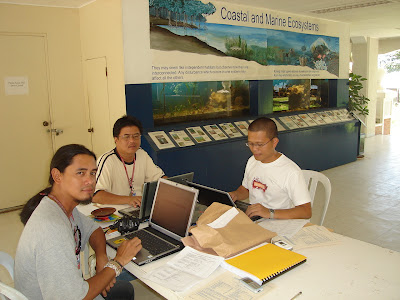Online courses for college in the Philippines and distance learning in general are slowly becoming commonplace. Improvements in long-distance communication and Internet connections have played a big role here.
Benefits
Internet based classes allow students to learn at their own pace. Schedules are flexible. This enables students to continue working or do other projects in the meantime. Working students will find web classes more accommodating in terms of flexibility.
Distance and Online Learning Programs
Some of the classes that offer online / distance learning / open universities are Benguet State University, CLSU Open University and Bicol University. Other schools with open universities are Western Mindanao University, Pangasinan State University, Polytechnic University of the Philippines and many other others.
Homeschooling programs are numerous too. Some of those on the list are the School of Tomorrow, the Master’s Academy (TMA), Harvest Christian School International, Colegio de San Juan de Letran and Angelicum College.
Open Universities
As the name suggests, these provide an open approach to learning. Courses may be non-formal, or could lead to a diploma, certificate or degree. Undergraduate and graduate degree programs are available. In these programs, Internet technology is utilized widely. Almost all of the materials can be learned online. But the materials can be printed for reference.
Courses Offered
Some of these courses can be studied fully online, while others are hybrid. You need to study online and on campus. Computer science, Doctor of Communication and Doctor of Philosophy in Education are among those offered. You may choose from mathematics education, physics, chemistry or biology education.
Graduate programs consist of Masters in Arts in Education (social studies), language studies, environment and natural resources management. Students may also pursue degrees like public management, Master of Arts in Nursing and Master in Hospital Administration. There are also masters programs on public health, distance education, development communication and social work.
Other Information
These Internet courses will require students to study as diligently as in a traditional class. Even though there are no face to face encounters, instructors will grade those assignments. Aside from reading materials, there are audio recordings, videos and exercises that have to be done.
Videos, online articles and modules are also included in the course. Email, chat rooms and forums are used by teachers and students for communication and interaction.
Online courses for college in the Philippines are a low cost alternative compared to traditional schooling. With more of the country getting wired, their numbers will expand.